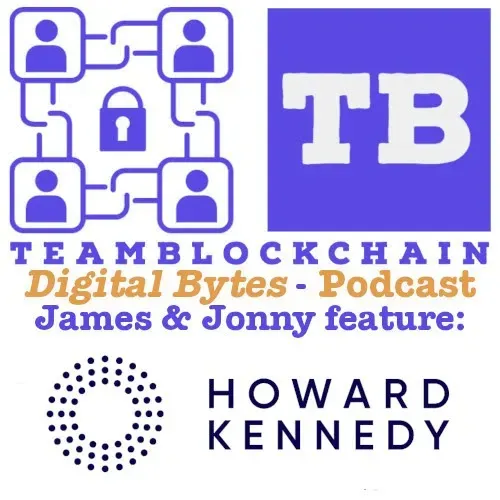
Jonny Fry / James Tylee of Digital Bytes by Team Blockchain on Cyber.FM featuring James Kaufmann, partner at Howard Kennedy
Team Blockchain Radio
Welcome to this week’s Digital Bytes. This week we have analysis on the following topics:
Blockchain and crypto adoption in Latin America - some Latin American countries have turned to virtual money as a safer and more profitable option following the fall in government-regulated currencies. Between 2019 and 2021, the use of cryptocurrencies in Latin America rose by 1,370%; at about the same time, El Salvador approved Bitcoin as an official legal tender, becoming the first country to do so. Meanwhile, we are seeing a growing use of blockchain technology in a variety of business sectors.
Digital assets in vehicles - in February 2022, Porsche became the first auto manufacturer to successfully test blockchain in its cars, with many other car manufacturers also exploring ways to integrate this game-changing technology into their vehicles. Between themselves, they are all aiming to take advantage of its potential to dramatically change how information or data is stored and used, subsequently enhancing transparency and security and improving transactions.
Is decentralisation the next evolution of UK financial regulation? - with the continued growth in both the range and reach of digital assets, how will financial regulation evolve? In this article, the issues and challenges facing those looking to regulate crypto in the UK are summarised with comments on the fact that rather than fight it, regulators need to embrace and learn from crypto and distributed ledger technology.
The Securities Exchange Commission (SEC) fights to stay relevant for the crypto market - the SEC has been actively pursuing crypto firms whom it believes have broken security regulations and has issued over 80 fines ($2billion) so far. However, the role of crypto regulator may pass to the Commodities Futures Trading Commission (CFTC), not the SEC, and thus give the US crypto-regulatory clarity whilst encouraging innovation for digital assets.